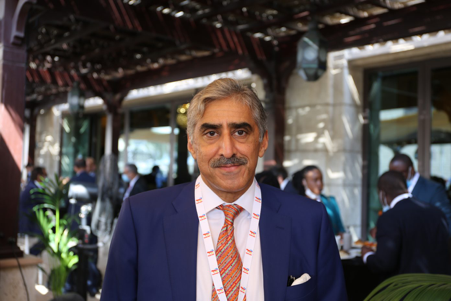Africa is seen as one of the best investment destinations as the continent continues to attract investors from other parts of the world.
One of the sectors that has attracted massive investment is the power and oil sector, due to the important role they play in the running of an economy.
With the influx of investors into the continent, one thing that African governments should be mindful of is the possibility of litigation between government and investors.
Sadly, African nations have not paid attention to building the capacity of lawyers working in various government institutions to be able to help in drafting contractual agreements and also defend or advise countries in the event of dispute.
According to a report by Bettina Muller and Cecilia Olivet at Trans National Institute (tni.org), an international research and advocacy institute, by the end of August 2019 African states were hit by a total of 106 known investment treaty arbitration claims. The figure represents 11 percent of all known investor-state disputes worldwide.
The report noted that African states were the main losers in these investment arbitration cases.
The continent, which has been struggling to develop, lost a total of US$55.5billion as claimed by investors since 1993. The claimants include power and oil and gas investors.
The report cited European investors as those who initiated the majority of the lawsuits against African countries, accounting for 70 percent of all cases.
Khawar Qureshi, an international commercial lawyer with over 30 years of experience in the sector, proposed solutions that enable African governments to prevent or deal more effectively with disputes between them and investors.
Among them, he suggested that the first thing African states should do when signing contracts with foreign investors is to ensure due diligence.
“I make no criticism of any government in particular. Nevertheless, when any party enters into a contract it must ensure due diligence is undertaken. Is the contract commercially necessary and viable? Has it been drafted to provide reasonable protections, or is it one sided? The contract has to be reviewed and drafted with expertise, and when a dispute arises you must make sure it is handled by knowledgeable professionals.
“If a dispute is about to occur, make sure you have the best legal advice available,” he added.
Mr. Qureshi further advocated capacity building for African lawyers in order to enable them to be up to date with emerging issues.
He noted that capacity building for lawyers who handle government contracts and disputes can be more effective, saying: “In my international practice as a Queens Counsel, I ensure that when I work for a government I help in capacity building by training government lawyers”.
Mr. Qureshi was chosen to advise the government of Ghana after the GPGC arbitral award was handed down.










